Want to know what books Chris Goward recommends on their reading list? We've researched interviews, social media posts, podcasts, and articles to build a comprehensive list of Chris Goward's favorite book recommendations of all time.
1

Major New York Times bestseller
Winner of the National Academy of Sciences Best Book Award in 2012
Selected by the New York Times Book Review as one of the best books of 2011
A Globe and Mail Best Books of the Year 2011 Title
One of The Economist's 2011 Books of the Year
One of The Wall Street Journal's Best Nonfiction Books of the Year 2011
2013 Presidential Medal of Freedom Recipient
In the international bestseller, Thinking, Fast and Slow, Daniel Kahneman, the renowned psychologist and winner of the Nobel... more Major New York Times bestseller
Winner of the National Academy of Sciences Best Book Award in 2012
Selected by the New York Times Book Review as one of the best books of 2011
A Globe and Mail Best Books of the Year 2011 Title
One of The Economist's 2011 Books of the Year
One of The Wall Street Journal's Best Nonfiction Books of the Year 2011
2013 Presidential Medal of Freedom Recipient
In the international bestseller, Thinking, Fast and Slow, Daniel Kahneman, the renowned psychologist and winner of the Nobel Prize in Economics, takes us on a groundbreaking tour of the mind and explains the two systems that drive the way we think. System 1 is fast, intuitive, and emotional; System 2 is slower, more deliberative, and more logical. The impact of overconfidence on corporate strategies, the difficulties of predicting what will make us happy in the future, the profound effect of cognitive biases on everything from playing the stock market to planning our next vacation—each of these can be understood only by knowing how the two systems shape our judgments and decisions.
Engaging the reader in a lively conversation about how we think, Kahneman reveals where we can and cannot trust our intuitions and how we can tap into the benefits of slow thinking. He offers practical and enlightening insights into how choices are made in both our business and our personal lives—and how we can use different techniques to guard against the mental glitches that often get us into trouble. Winner of the National Academy of Sciences Best Book Award and the Los Angeles Times Book Prize and selected by The New York Times Book Review as one of the ten best books of 2011, Thinking, Fast and Slow is destined to be a classic. less 
Barack ObamaA few months ago, Mr. Obama read “Thinking, Fast and Slow,” by Daniel Kahneman, about how people make decisions — quick, instinctive thinking versus slower, contemplative deliberation. For Mr. Obama, a deliberator in an instinctive business, this may be as instructive as any political science text. (Source)
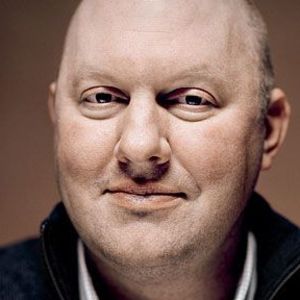
Marc AndreessenCaptivating dive into human decision making, marred by inclusion of several/many? psychology studies that fail to replicate. Will stand as a cautionary tale? (Source)
2

“The impediment to action advances action. What stands in the way becomes the way.” — Marcus Aurelius
We are stuck, stymied, frustrated. But it needn’t be this way. There is a formula for success that’s been followed by the icons of history—from John D. Rockefeller to Amelia Earhart to Ulysses S. Grant to Steve Jobs—a formula that let them turn obstacles into opportunities. Faced with impossible situations, they found the astounding triumphs we all seek.
These men and women were not exceptionally brilliant, lucky, or gifted. Their success came from timeless... more “The impediment to action advances action. What stands in the way becomes the way.” — Marcus Aurelius
We are stuck, stymied, frustrated. But it needn’t be this way. There is a formula for success that’s been followed by the icons of history—from John D. Rockefeller to Amelia Earhart to Ulysses S. Grant to Steve Jobs—a formula that let them turn obstacles into opportunities. Faced with impossible situations, they found the astounding triumphs we all seek.
These men and women were not exceptionally brilliant, lucky, or gifted. Their success came from timeless philosophical principles laid down by a Roman emperor who struggled to articulate a method for excellence in any and all situations.
This book reveals that formula for the first time—and shows us how we can turn our own adversity into advantage. less 
Marvin LiaoMy list would be (besides the ones I mentioned in answer to the previous question) both business & Fiction/Sci-Fi and ones I personally found helpful to myself. The business books explain just exactly how business, work & investing are in reality & how to think properly & differentiate yourself. On the non-business side, a mix of History & classic fiction to understand people, philosophy to make... (Source)

James AltucherMy life has been beset with obstacles. It takes practice (and pain) to surmount them and achieve success. [This author]’s book is a how-to guide for just that. (Source)

Chris GuillebeauFirst came Marcus Aurelius, then Frederick the Great... and now there's you. This surprising book shows you how to craft a life of wonder by embracing obstacles and challenge. (Source)
3

Alternate cover edition of ISBN 9780062457738
In this generation-defining self-help guide, a superstar blogger cuts through the crap to show us how to stop trying to be "positive" all the time so that we can truly become better, happier people.
For decades, we’ve been told that positive thinking is the key to a happy, rich life. "F**k positivity," Mark Manson says. "Let’s be honest, shit is f**ked and we have to live with it." In his wildly popular Internet blog, Manson doesn’t sugarcoat or equivocate. He tells it like it is—a dose of raw, refreshing, honest truth... more Alternate cover edition of ISBN 9780062457738
In this generation-defining self-help guide, a superstar blogger cuts through the crap to show us how to stop trying to be "positive" all the time so that we can truly become better, happier people.
For decades, we’ve been told that positive thinking is the key to a happy, rich life. "F**k positivity," Mark Manson says. "Let’s be honest, shit is f**ked and we have to live with it." In his wildly popular Internet blog, Manson doesn’t sugarcoat or equivocate. He tells it like it is—a dose of raw, refreshing, honest truth that is sorely lacking today. The Subtle Art of Not Giving a F**k is his antidote to the coddling, let’s-all-feel-good mindset that has infected American society and spoiled a generation, rewarding them with gold medals just for showing up.
Manson makes the argument, backed both by academic research and well-timed poop jokes, that improving our lives hinges not on our ability to turn lemons into lemonade, but on learning to stomach lemons better. Human beings are flawed and limited—"not everybody can be extraordinary, there are winners and losers in society, and some of it is not fair or your fault." Manson advises us to get to know our limitations and accept them. Once we embrace our fears, faults, and uncertainties, once we stop running and avoiding and start confronting painful truths, we can begin to find the courage, perseverance, honesty, responsibility, curiosity, and forgiveness we seek.
There are only so many things we can give a f**k about so we need to figure out which ones really matter, Manson makes clear. While money is nice, caring about what you do with your life is better, because true wealth is about experience. A much-needed grab-you-by-the-shoulders-and-look-you-in-the-eye moment of real-talk, filled with entertaining stories and profane, ruthless humor, The Subtle Art of Not Giving a F**k is a refreshing slap for a generation to help them lead contented, grounded lives. less 
Ryan HolidayI loved Mark Manson’s The Subtle Art of Not Giving A Fuck. There’s a reason this book is blowing up. It’s that good. (Source)

Chris GowardHere are some of the books that have been very impactful for me, or taught me a new way of thinking: [...] The Subtle Art of Not Giving a F*ck. (Source)
4

Under Andy Grove's leadership, Intel has become the world's largestchipmaker, the fifth-most-admired company in America, and theseventh-most-profitable company among the Fortune 500. You don't achieverankings like these unless you have mastered a rare understanding of the art ofbusiness and an unusual way with its practice.Few CEOs can claim this level of consistent record-breaking success. Groveattributes much of this success to the philosophy and strategy he reveals in "Only the Paranoid Survive--" a book that is unique in leadership annalsfor offering a bold new business measure, and for... more Under Andy Grove's leadership, Intel has become the world's largestchipmaker, the fifth-most-admired company in America, and theseventh-most-profitable company among the Fortune 500. You don't achieverankings like these unless you have mastered a rare understanding of the art ofbusiness and an unusual way with its practice.Few CEOs can claim this level of consistent record-breaking success. Groveattributes much of this success to the philosophy and strategy he reveals in "Only the Paranoid Survive--" a book that is unique in leadership annalsfor offering a bold new business measure, and for taking the reader deep insidethe workings of a major corporation.
Grove's contribution to business thinking concerns a new way of measuring thenightmare moment every leader dreads--the moment when massive change occurs andall bets are off. The success you had the day before is gone, destroyed byunforeseen changes that hit like a stage-six rapid. Grove calls such momentsStrategic Inflection Points, and he has lived through several. When SlPs hit, all rules of business shift fast, furiously, and forever. SlPs can be set offby almost anything--megacompetition, an arcane change in regulations, or aseemingly modest change in technology.
Yet in the watchful leader's hand, SlPs can be an ace. Managed right, a companycan turn a SIP into a positive force to win in the marketplace and emergestronger than ever.
To achieve that level of mastery over change, you must know its propertiesinside and out. Grove addresses questions such as these: What are the stages ofthese tidal waves? What sources do you turn to in order to foresee dangersbefore trouble announces itself? When threats abound, how do you dealwith youremotions, your calendar, your career--as well as with your most loyal managersand customers, who may cling to tradition?
No stranger to risk, Grove examines his own record of success and failure, including the drama of how he navigated the events of the Pentium flaw, whichthreatened Intel in a major way, and how he is dealing with the SIP brought onby the Internet. The work of a lifetime of reflection, "Only the ParanoidSurvive" is a contemporary classic of leadership skills.
"This terrific book is a dangerous book. It will make people think."
--Peter Drucker
"This books is about one super-important concept. You must learn about Strategic Inflection Points, because sooner or later you are going to live through one."
--Steve Jobs, Pixar Animation Studios less 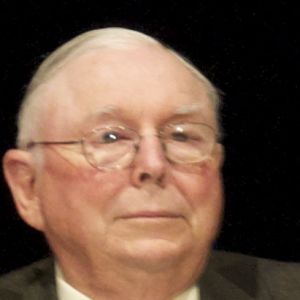
Charles T. MungerIn my whole life, I have known no wise people (over a broad subject matter area) who didn't read all the time -- none, zero. You'd be amazed at how much Warren reads -- and at how much I read. My children laugh at me. They think I'm a book with a couple of legs sticking out. (Source)

Steve JobsThis book is about one super-important concept. You must learn about Strategic Inflection Points, because sooner or later you are going to live through one. (Source)
5

Ray Dalio, one of the world’s most successful investors and entrepreneurs, shares the unconventional principles that he’s developed, refined, and used over the past forty years to create unique results in both life and business—and which any person or organization can adopt to help achieve their goals.
In 1975, Ray Dalio founded an investment firm, Bridgewater Associates, out of his two-bedroom apartment in New York City. Forty years later, Bridgewater has made more money for its clients than any other hedge fund in history and grown into the fifth most important private... more Ray Dalio, one of the world’s most successful investors and entrepreneurs, shares the unconventional principles that he’s developed, refined, and used over the past forty years to create unique results in both life and business—and which any person or organization can adopt to help achieve their goals.
In 1975, Ray Dalio founded an investment firm, Bridgewater Associates, out of his two-bedroom apartment in New York City. Forty years later, Bridgewater has made more money for its clients than any other hedge fund in history and grown into the fifth most important private company in the United States, according to Fortune magazine. Dalio himself has been named to Time magazine’s list of the 100 most influential people in the world. Along the way, Dalio discovered a set of unique principles that have led to Bridgewater’s exceptionally effective culture, which he describes as “an idea meritocracy that strives to achieve meaningful work and meaningful relationships through radical transparency.” It is these principles, and not anything special about Dalio—who grew up an ordinary kid in a middle-class Long Island neighborhood—that he believes are the reason behind his success.
In Principles, Dalio shares what he’s learned over the course of his remarkable career. He argues that life, management, economics, and investing can all be systemized into rules and understood like machines. The book’s hundreds of practical lessons, which are built around his cornerstones of “radical truth” and “radical transparency,” include Dalio laying out the most effective ways for individuals and organizations to make decisions, approach challenges, and build strong teams. He also describes the innovative tools the firm uses to bring an idea meritocracy to life, such as creating “baseball cards” for all employees that distill their strengths and weaknesses, and employing computerized decision-making systems to make believability-weighted decisions. While the book brims with novel ideas for organizations and institutions, Principles also offers a clear, straightforward approach to decision-making that Dalio believes anyone can apply, no matter what they’re seeking to achieve.
Here is a rare opportunity to gain proven advice unlike anything you’ll find in the conventional business press. less 
Bill GatesRay Dalio has provided me with invaluable guidance and insights that are now available to you in Principles. (Source)

Tony RobbinsI found it to be truly extraordinary. Every page is full of so many principles of distinction and insights—and I love how Ray incorporates his history and his life in such an elegant way. (Source)
6

Most startups fail. But many of those failures are preventable. The Lean Startup is a new approach being adopted across the globe, changing the way companies are built and new products are launched.
Eric Ries defines a startup as an organization dedicated to creating something new under conditions of extreme uncertainty. This is just as true for one person in a garage or a group of seasoned professionals in a Fortune 500 boardroom. What they have in common is a mission to penetrate that fog of uncertainty to discover a successful path to a sustainable business. more Most startups fail. But many of those failures are preventable. The Lean Startup is a new approach being adopted across the globe, changing the way companies are built and new products are launched.
Eric Ries defines a startup as an organization dedicated to creating something new under conditions of extreme uncertainty. This is just as true for one person in a garage or a group of seasoned professionals in a Fortune 500 boardroom. What they have in common is a mission to penetrate that fog of uncertainty to discover a successful path to a sustainable business.
The Lean Startup approach fosters companies that are both more capital efficient and that leverage human creativity more effectively. Inspired by lessons from lean manufacturing, it relies on "validated learning," rapid scientific experimentation, as well as a number of counter-intuitive practices that shorten product development cycles, measure actual progress without resorting to vanity metrics, and learn what customers really want. It enables a company to shift directions with agility, altering plans inch by inch, minute by minute.
Rather than wasting time creating elaborate business plans, The Lean Startup offers entrepreneurs - in companies of all sizes - a way to test their vision continuously, to adapt and adjust before it's too late. Ries provides a scientific approach to creating and managing successful startups in a age when companies need to innovate more than ever. less 
Sheryl SandbergProvides a great inside look at how the tech industry approaches building products and businesses. (Source)

Tim O'ReillyThe Lean Startup isn't just about how to create a more successful entrepreneurial business, it's about what we can learn from those businesses to improve virtually everything we do. I imagine Lean Startup principles applied to government programs, to healthcare, and to solving the world's great problems. It's ultimately an answer to the question 'How can we learn more quickly what works, and... (Source)
7

Since Don’t Make Me Think was first published in 2000, over 400,000 Web designers and developers have relied on Steve Krug’s guide to help them understand the principles of intuitive navigation and information design.
In this 3rd edition, Steve returns with fresh perspective to reexamine the principles that made Don’t Make Me Think a classic-–with updated examples and a new chapter on mobile usability. And it’s still short, profusely illustrated…and best of all–fun to read.
If you’ve read it before, you’ll rediscover what made Don’t Make Me Think so essential to Web... more Since Don’t Make Me Think was first published in 2000, over 400,000 Web designers and developers have relied on Steve Krug’s guide to help them understand the principles of intuitive navigation and information design.
In this 3rd edition, Steve returns with fresh perspective to reexamine the principles that made Don’t Make Me Think a classic-–with updated examples and a new chapter on mobile usability. And it’s still short, profusely illustrated…and best of all–fun to read.
If you’ve read it before, you’ll rediscover what made Don’t Make Me Think so essential to Web designers and developers around the world. If you’ve never read it, you’ll see why so many people have said it should be required reading for anyone working on Web sites. less 
Raluca RaduI work in digital marketing so I would [recommend]: [...] Don't Make Me Think by Steve Krug. (Source)

Kaci Lambe KaiThese three books are about how people actually use design in their lives. They helped me understand this very basic idea: There are no dumb users, only bad designers. Take the time to create based on how your design will be interacted with. Test it. Iterate. That's how you become a good designer. (Source)

Tracy OsbornIn terms of web design, Don't Make Me Think by Steve Krug — so important for anyone learning how to build websites. (Source)
8

You can go after the job you want—and get it!
You can take the job you have—and improve it!
You can take any situation—and make it work for you!
Dale Carnegie’s rock-solid, time-tested advice has carried countless people up the ladder of success in their business and personal lives. One of the most groundbreaking and timeless bestsellers of all time, How to Win Friends & Influence People will teach you:
-Six ways to make people like you
-Twelve ways to win people to your way of thinking
-Nine ways to change people without arousing... more You can go after the job you want—and get it!
You can take the job you have—and improve it!
You can take any situation—and make it work for you!
Dale Carnegie’s rock-solid, time-tested advice has carried countless people up the ladder of success in their business and personal lives. One of the most groundbreaking and timeless bestsellers of all time, How to Win Friends & Influence People will teach you:
-Six ways to make people like you
-Twelve ways to win people to your way of thinking
-Nine ways to change people without arousing resentment
And much more! Achieve your maximum potential—a must-read for the twenty-first century with more than 15 million copies sold! less 9
Written in a fast-paced thriller style, 'The Goal' contains a serious message for all managers in industry and explains the ideas which underline the Theory of Constraints developed by the author. more Written in a fast-paced thriller style, 'The Goal' contains a serious message for all managers in industry and explains the ideas which underline the Theory of Constraints developed by the author. less 
Jeff BezosEncourages companies to identify the biggest constraints in their operations and then structure their organizations to get the most out of those constraints. (Source)

Kevin SystromAbout basically manufacturing and supply chain management. It sounds really boring, but I promise you it’s really good. (Source)

Chris GowardHere are some of the books that have been very impactful for me, or taught me a new way of thinking: [...] The Goal. (Source)
10

Why do you do what you do?
Why are some people and organizations more innovative, more influential, and more profitable than others? Why do some command greater loyalty from customers and employees alike? Even among the successful, why are so few able to repeat their success over and over?
People like Martin Luther King Jr., Steve Jobs, and the Wright Brothers might have little in common, but they all started with why. It was their natural ability to start with why that enabled them to inspire those around them and to achieve remarkable things.
more Why do you do what you do?
Why are some people and organizations more innovative, more influential, and more profitable than others? Why do some command greater loyalty from customers and employees alike? Even among the successful, why are so few able to repeat their success over and over?
People like Martin Luther King Jr., Steve Jobs, and the Wright Brothers might have little in common, but they all started with why. It was their natural ability to start with why that enabled them to inspire those around them and to achieve remarkable things.
In studying the leaders who've had the greatest influence in the world, Simon Sinek discovered that they all think, act, and communicate in the exact same way—and it's the complete opposite of what everyone else does. Sinek calls this powerful idea The Golden Circle, and it provides a framework upon which organizations can be built, movements can be lead, and people can be inspired. And it all starts with WHY.
Any organization can explain what it does; some can explain how they do it; but very few can clearly articulate why. WHY is not money or profit—those are always results. WHY does your organization exist? WHY does it do the things it does? WHY do customers really buy from one company or another? WHY are people loyal to some leaders, but not others?
Starting with WHY works in big business and small business, in the nonprofit world and in politics. Those who start with WHY never manipulate, they inspire. And the people who follow them don't do so because they have to; they follow because they want to.
Drawing on a wide range of real-life stories, Sinek weaves together a clear vision of what it truly takes to lead and inspire. This book is for anyone who wants to inspire others or who wants to find someone to inspire them. less 
Richard BransonToday is World Book Day, a wonderful opportunity to address this #ChallengeRichard sent in by Mike Gonzalez of New Jersey: Make a list of your top 65 books to read in a lifetime. (Source)

Tony RobbinsThe basis of this book is so important to anyone looking to increase their influence, profits or impact. People won't truly buy into a product, service, movement, or idea until they understand the WHY behind it. When you start with the why, everything else falls into place. This book is so impactful, I consider it required reading. (Source)
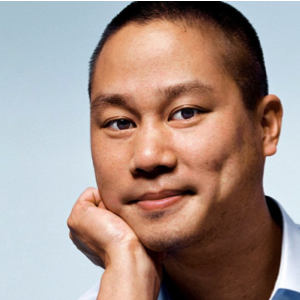
Tony HsiehOver the years he’s [] recommended well over 20 business books — including his own, the 2010 bestseller Delivering Happiness and you can always find what he’s currently reading atop his cluttered desk. Start with Why is amogst those titles. (Source)
Don't have time to read Chris Goward's favorite books? Read Shortform summaries.
Shortform summaries help you learn 10x faster by:
- Being comprehensive: you learn the most important points in the book
- Cutting out the fluff: you focus your time on what's important to know
- Interactive exercises: apply the book's ideas to your own life with our educators' guidance.
11

Influence, the classic book on persuasion, explains the psychology of why people say "yes"—and how to apply these understandings. Dr. Robert Cialdini is the seminal expert in the rapidly expanding field of influence and persuasion. His thirty-five years of rigorous, evidence-based research along with a three-year program of study on what moves people to change behavior has resulted in this highly acclaimed book.
You'll learn the six universal principles, how to use them to become a skilled persuader—and how to defend yourself against them. Perfect for people in all walks of life,... more Influence, the classic book on persuasion, explains the psychology of why people say "yes"—and how to apply these understandings. Dr. Robert Cialdini is the seminal expert in the rapidly expanding field of influence and persuasion. His thirty-five years of rigorous, evidence-based research along with a three-year program of study on what moves people to change behavior has resulted in this highly acclaimed book.
You'll learn the six universal principles, how to use them to become a skilled persuader—and how to defend yourself against them. Perfect for people in all walks of life, the principles of Influence will move you toward profound personal change and act as a driving force for your success. less 
Scott AdamsGreat video summary of Influence | The Psychology of Persuasion by Robert Cialdini ► Book Summary https://t.co/KqUJ0YohPk via @YouTube (Source)

Dan ArielyIt covers a range of ways in which we end up doing things, and how we don’t understand why we’re doing them. (Source)
12

Why do our headaches persist after taking a one-cent aspirin but disappear when we take a 50-cent aspirin?
Why does recalling the Ten Commandments reduce our tendency to lie, even when we couldn't possibly be caught?
Why do we splurge on a lavish meal but cut coupons to save twenty-five cents on a can of soup?
Why do we go back for second helpings at the unlimited buffet, even when our stomachs are already full?
And how did we ever start spending $4.15 on a cup of coffee when, just a few years ago, we used to pay less than a dollar?
When... more Why do our headaches persist after taking a one-cent aspirin but disappear when we take a 50-cent aspirin?
Why does recalling the Ten Commandments reduce our tendency to lie, even when we couldn't possibly be caught?
Why do we splurge on a lavish meal but cut coupons to save twenty-five cents on a can of soup?
Why do we go back for second helpings at the unlimited buffet, even when our stomachs are already full?
And how did we ever start spending $4.15 on a cup of coffee when, just a few years ago, we used to pay less than a dollar?
When it comes to making decisions in our lives, we think we're in control. We think we're making smart, rational choices. But are we?
In a series of illuminating, often surprising experiments, MIT behavioral economist Dan Ariely refutes the common assumption that we behave in fundamentally rational ways. Blending everyday experience with groundbreaking research, Ariely explains how expectations, emotions, social norms, and other invisible, seemingly illogical forces skew our reasoning abilities.
Not only do we make astonishingly simple mistakes every day, but we make the same "types" of mistakes, Ariely discovers. We consistently overpay, underestimate, and procrastinate. We fail to understand the profound effects of our emotions on what we want, and we overvalue what we already own. Yet these misguided behaviors are neither random nor senseless. They're systematic and predictable--making us "predictably" irrational.
From drinking coffee to losing weight, from buying a car to choosing a romantic partner, Ariely explains how to break through these systematic patterns of thought to make better decisions. "Predictably Irrational" will change the way we interact with the world--one small decision at a time. less 
Max Levchin[Max Levchin recommended this book as an answer to "What business books would you advise young entrepreneurs read?"] (Source)

Andra Zaharia'While I was thinking of the best books to add to this short list, I realized that not even half of them are directly related to digital marketing. This is because I believe that the best marketers are people who understand human nature deeply and aim to bring out the best in it. Call me naive, but that’s how I see it. If I were to want to pursue a career in marketing, I’d read [...] Predictably... (Source)
13

Viktor E. Frankl, William J. Winslade, et al. | 4.53
Man's Search for Meaning has riveted generations of readers with its descriptions of life in Nazi death camps and its lessons for spiritual survival. Between 1942 and 1945 psychiatrist Viktor Frankl labored in four different camps, including Auschwitz, while his parents, brother, and pregnant wife perished. Based on his own experience and the stories of his many patients, Frankl argues that we cannot avoid suffering but we can choose how to cope with it, find meaning in it, and move forward with renewed purpose. Frankl's theory—known as logotherapy, from the Greek word logos ("meaning")—holds... more Man's Search for Meaning has riveted generations of readers with its descriptions of life in Nazi death camps and its lessons for spiritual survival. Between 1942 and 1945 psychiatrist Viktor Frankl labored in four different camps, including Auschwitz, while his parents, brother, and pregnant wife perished. Based on his own experience and the stories of his many patients, Frankl argues that we cannot avoid suffering but we can choose how to cope with it, find meaning in it, and move forward with renewed purpose. Frankl's theory—known as logotherapy, from the Greek word logos ("meaning")—holds that our primary drive in life is not pleasure, as Freud maintained, but the discovery and pursuit of what we personally find meaningful. In the decades since its first publication in 1959, Man's Search for Meaning has become a classic, with more than twelve million copies in print around the world. A 1991 Library of Congress survey that asked readers to name a "book that made a difference in your life" found Man's Search for Meaning among the ten most influential books in America. At once a memoir, a meditation, a treatise, and a history, it continues to inspire us all to find significance in the very act of living.
(back cover) less 
Tony RobbinsAnother book that I’ve read dozens of times. It taught me that if you change the meaning, you change everything. Meaning equals emotion, and emotion equals life. (Source)

Jimmy FallonI read it while spending ten days in the ICU of Bellevue hospital trying to reattach my finger from a ring avulsion accident in my kitchen. It talks about the meaning of life, and I believe you come out a better person from reading it. (Source)

Simon SinekThis is essential reading for anyone interested in the topic of purpose. Because Frankl’s personal experience was so extreme, the lessons are that much more stark. And, most importantly, his lessons are universally applicable to all our lives. (Source)
14

100,000 years ago, at least six human species inhabited the earth. Today there is just one. Us. Homo sapiens.
How did our species succeed in the battle for dominance? Why did our foraging ancestors come together to create cities and kingdoms? How did we come to believe in gods, nations and human rights; to trust money, books and laws; and to be enslaved by bureaucracy, timetables and consumerism? And what will our world be like in the millennia to come?
In Sapiens, Dr Yuval Noah Harari spans the whole of human history, from the very first humans to walk the... more 100,000 years ago, at least six human species inhabited the earth. Today there is just one. Us. Homo sapiens.
How did our species succeed in the battle for dominance? Why did our foraging ancestors come together to create cities and kingdoms? How did we come to believe in gods, nations and human rights; to trust money, books and laws; and to be enslaved by bureaucracy, timetables and consumerism? And what will our world be like in the millennia to come?
In Sapiens, Dr Yuval Noah Harari spans the whole of human history, from the very first humans to walk the earth to the radical – and sometimes devastating – breakthroughs of the Cognitive, Agricultural and Scientific Revolutions. Drawing on insights from biology, anthropology, paleontology and economics, he explores how the currents of history have shaped our human societies, the animals and plants around us, and even our personalities. Have we become happier as history has unfolded? Can we ever free our behaviour from the heritage of our ancestors? And what, if anything, can we do to influence the course of the centuries to come?
Bold, wide-ranging and provocative, Sapiens challenges everything we thought we knew about being human: our thoughts, our actions, our power ... and our future. less 
Barack Obamaeval(ez_write_tag([[250,250],'theceolibrary_com-leader-2','ezslot_7',164,'0','1']));
Fact or fiction, the president knows that reading keeps the mind sharp. He also delved into these non-fiction reads. (Source)

Bill GatesBoth Melinda and I read this one, and it has sparked lots of great conversations at our dinner table. Harari takes on a daunting challenge: to tell the entire history of the human race in just 400 pages. He also writes about our species today and how artificial intelligence, genetic engineering, and other technologies will change us in the future. Although I found things to disagree... (Source)

Richard BransonOne example of a book that has helped me to #ReadToLead this year is Sapiens: A Brief History of Humankind by Yuval Noah Harari. While the book came out a few years ago now, I got around to it this year, and am very glad I did. I’ve always been fascinated in what makes humans human, and how people are constantly evolving, changing and growing. The genius of Sapiens is that it takes some daunting,... (Source)
15

We live in digital time. Our pace is rushed, rapid-fire, and relentless. Facing crushing workloads, we try to cram as much as possible into every day. We're wired up, but we're melting down. Time management is no longer a viable solution. As bestselling authors Jim Loehr and Tony Schwartz demonstrate in this groundbreaking book, managing energy, not time, is the key to enduring high performance as well as to health, happiness, and life balance.
The number of hours in a day is fixed, but the quantity and quality of energy available to us is not. This fundamental insight has the power to... more We live in digital time. Our pace is rushed, rapid-fire, and relentless. Facing crushing workloads, we try to cram as much as possible into every day. We're wired up, but we're melting down. Time management is no longer a viable solution. As bestselling authors Jim Loehr and Tony Schwartz demonstrate in this groundbreaking book, managing energy, not time, is the key to enduring high performance as well as to health, happiness, and life balance.
The number of hours in a day is fixed, but the quantity and quality of energy available to us is not. This fundamental insight has the power to revolutionize the way you live your life. The Power of Full Engagement is a highly practical, scientifically based approach to managing your energy more skillfully both on and off the job.
At the heart of the program is the Corporate Athlete® Training System. It is grounded in twenty-five years of work with some of the world's greatest athletes to help them perform more effectively under brutal competitive pressures. Clients have included Jim Courier, Monica Seles, and Arantxa Sanchez-Vicario in tennis; Mark O'Meara and Ernie Els in golf; Eric Lindros and Mike Richter in hockey; Nick Anderson and Grant Hill in basketball; and gold medalist Dan Jansen in speed skating.
During the past decade, dozens of Fortune 500 companies have paid thousands of dollars to learn the Corporate Athlete training system. So have FBI swat teams, critical care physicians and nurses, salesmen, and stay-at-home moms. The Power of Full Engagement lays out the key training principles and provides a powerful, step-by-step program that will help you to:
• Mobilize four key sources of energy
• Balance energy expenditure with intermittent energy renewal
• Expand capacity in the same systematic way that elite athletes do
• Create highly specific, positive energy management rituals
Above all, this book provides a life-changing road map to becoming more fully engaged on and off the job, meaning physically energized, emotionally connected, mentally focused, and spiritually aligned. less 
Noah KaganOne of my favorite books ever. It’s not about your time, it’s about your energy. I read my favorite books again this year. Why not keep doing what works? The main things discussed in this book are how to maximize your energy and optimize recovery. (Source)

Chris GowardI recently enjoyed The Power of Full Engagement by Jim Loehr and Tony Schwartz. It was a good reminder about the importance of managing energy rather than time and how important rest and balance are to achieving the highest levels of performance. (Source)

Joel GascoigneThe Power of Full Engagement was one of the first books that helped me to start to understand myself, and to work to embrace how I feel and be intuitive. The key concept in the book is that you should be either fully engaged in a task, or fully disegaged and finding renewal. For example, finding the natural dips within your day and thinking about rituals and changes you could make. Maybe you go... (Source)
16

Colonel Chris Hadfield has spent decades training as an astronaut and has logged nearly 4000 hours in space. During this time he has broken into a Space Station with a Swiss army knife, disposed of a live snake while piloting a plane, and been temporarily blinded while clinging to the exterior of an orbiting spacecraft. The secret to Col. Hadfield's success-and survival-is an unconventional philosophy he learned at NASA: prepare for the worst-and enjoy every moment of it.
In An Astronaut's Guide to Life on Earth, Col. Hadfield takes readers deep into his years of... more Colonel Chris Hadfield has spent decades training as an astronaut and has logged nearly 4000 hours in space. During this time he has broken into a Space Station with a Swiss army knife, disposed of a live snake while piloting a plane, and been temporarily blinded while clinging to the exterior of an orbiting spacecraft. The secret to Col. Hadfield's success-and survival-is an unconventional philosophy he learned at NASA: prepare for the worst-and enjoy every moment of it.
In An Astronaut's Guide to Life on Earth, Col. Hadfield takes readers deep into his years of training and space exploration to show how to make the impossible possible. Through eye-opening, entertaining stories filled with the adrenaline of launch, the mesmerizing wonder of spacewalks, and the measured, calm responses mandated by crises, he explains how conventional wisdom can get in the way of achievement-and happiness. His own extraordinary education in space has taught him some counterintuitive lessons: don't visualize success, do care what others think, and always sweat the small stuff.
You might never be able to build a robot, pilot a spacecraft, make a music video or perform basic surgery in zero gravity like Col. Hadfield. But his vivid and refreshing insights will teach you how to think like an astronaut, and will change, completely, the way you view life on Earth-especially your own. less 
James AltucherAnd while you are at it, throw in “Bounce” by Mathew Syed, who was the UK Ping Pong champion when he was younger. I love any book where someone took their passion, documented it, and shared it with us. That’s when you can see the subleties, the hard work, the luck, the talent, the skill, all come together to form a champion. Heck, throw in, “An Astronaut’s Guide to Earth” by Commander Chris... (Source)

Chris GowardHere are some of the books that have been very impactful for me, or taught me a new way of thinking: [...] An Astronaut's Guide to Life on Earth. (Source)
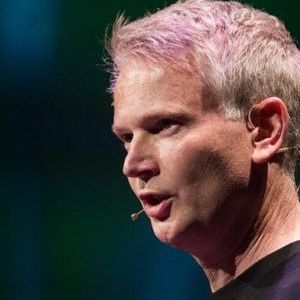
Simon CarleyAlso love the idea of being a zero. Totally agree that some of my finest colleagues are that. I’m fact the doc I want to look after me in resus is defo a zero. (Read the book to find out why). (Source)
17

Which is more dangerous, a gun or a swimming pool? What do schoolteachers and sumo wrestlers have in common? Why do drug dealers still live with their moms? How much do parents really matter? What kind of impact did Roe v. Wade have on violent crime? Freakonomics will literally redefine the way we view the modern world.
These may not sound like typical questions for an economist to ask. But Steven D. Levitt is not a typical economist. He is a much heralded scholar who studies the stuff and riddles of everyday life -- from cheating and crime to sports and child rearing -- and whose... more Which is more dangerous, a gun or a swimming pool? What do schoolteachers and sumo wrestlers have in common? Why do drug dealers still live with their moms? How much do parents really matter? What kind of impact did Roe v. Wade have on violent crime? Freakonomics will literally redefine the way we view the modern world.
These may not sound like typical questions for an economist to ask. But Steven D. Levitt is not a typical economist. He is a much heralded scholar who studies the stuff and riddles of everyday life -- from cheating and crime to sports and child rearing -- and whose conclusions regularly turn the conventional wisdom on its head. He usually begins with a mountain of data and a simple, unasked question. Some of these questions concern life-and-death issues; others have an admittedly freakish quality. Thus the new field of study contained in this book: freakonomics.
Through forceful storytelling and wry insight, Levitt and co-author Stephen J. Dubner show that economics is, at root, the study of incentives -- how people get what they want, or need, especially when other people want or need the same thing. In Freakonomics, they set out to explore the hidden side of ... well, everything. The inner workings of a crack gang. The truth about real-estate agents. The myths of campaign finance. The telltale marks of a cheating schoolteacher. The secrets of the Ku Klux Klan.
What unites all these stories is a belief that the modern world, despite a surfeit of obfuscation, complication, and downright deceit, is not impenetrable, is not unknowable, and -- if the right questions are asked -- is even more intriguing than we think. All it takes is a new way of looking. Steven Levitt, through devilishly clever and clear-eyed thinking, shows how to see through all the clutter.
Freakonomics establishes this unconventional premise: If morality represents how we would like the world to work, then economics represents how it actually does work. It is true that readers of this book will be armed with enough riddles and stories to last a thousand cocktail parties. But Freakonomics can provide more than that. It will literally redefine the way we view the modern world.
(front flap) less 
Malcolm GladwellI don’t need to say much here. This book invented an entire genre. Economics was never supposed to be this entertaining. (Source)
18

Nightline anchor Dan Harris embarks on an unexpected, hilarious, and deeply skeptical odyssey through the strange worlds of spirituality and self-help, and discovers a way to get happier that is truly achievable.
After having a nationally televised panic attack on Good Morning America, Dan Harris knew he had to make some changes. A lifelong nonbeliever, he found himself on a bizarre adventure, involving a disgraced pastor, a mysterious self-help guru, and a gaggle of brain scientists. Eventually, Harris realized that the source of his problems was the very thing... more Nightline anchor Dan Harris embarks on an unexpected, hilarious, and deeply skeptical odyssey through the strange worlds of spirituality and self-help, and discovers a way to get happier that is truly achievable.
After having a nationally televised panic attack on Good Morning America, Dan Harris knew he had to make some changes. A lifelong nonbeliever, he found himself on a bizarre adventure, involving a disgraced pastor, a mysterious self-help guru, and a gaggle of brain scientists. Eventually, Harris realized that the source of his problems was the very thing he always thought was his greatest asset: the incessant, insatiable voice in his head, which had both propelled him through the ranks of a hyper-competitive business and also led him to make the profoundly stupid decisions that provoked his on-air freak-out.
We all have a voice in our head. It’s what has us losing our temper unnecessarily, checking our email compulsively, eating when we’re not hungry, and fixating on the past and the future at the expense of the present. Most of us would assume we’re stuck with this voice – that there’s nothing we can do to rein it in – but Harris stumbled upon an effective way to do just that. It’s a far cry from the miracle cures peddled by the self-help swamis he met; instead, it’s something he always assumed to be either impossible or useless: meditation. After learning about research that suggests meditation can do everything from lower your blood pressure to essentially rewire your brain, Harris took a deep dive into the underreported world of CEOs, scientists, and even marines who are now using it for increased calm, focus, and happiness.
10% Happier takes readers on a ride from the outer reaches of neuroscience to the inner sanctum of network news to the bizarre fringes of America’s spiritual scene, and leaves them with a takeaway that could actually change their lives. less 
Peter AttiaModulating hormones as necessary - we’ve not really talked about that. Fixing anything that needs to be fixed, on top of that pharmacologically, and I’m a huge proponent of pharmacotherapy under the right setting. The final component is managing your stress. So as a guy who’s thinking about this, I became really interested after actually reading Dan Harris’s book. (Source)

Chris GowardI remember reading 10% Happier by Dan Harris on one of my many flights to speak at a conference a couple years ago. I had been practicing meditation for a few years, and had tried to get deeper into learning about it, I struggled with the religious aspect many Buddhist authors brought, which seemed to bring more confusion than clarity. The way Dan described his process of skepticism and discovery... (Source)
19

Chris GowardHere are some of the books that have been very impactful for me, or taught me a new way of thinking: [...] The 3HAG Way. (Source)
20

A companion guidebook to the number-one bestselling Good to Great, focused on implementation of the flywheel concept, one of Jim Collins’ most memorable ideas that has been used across industries and the social sectors, and with startups.
The key to business success is not a single innovation or one plan. It is the act of turning the flywheel, slowly gaining momentum and eventually reaching a breakthrough. Building upon the flywheel concept introduced in his groundbreaking classic Good to Great, Jim Collins teaches readers how to create their own flywheel, how to... more A companion guidebook to the number-one bestselling Good to Great, focused on implementation of the flywheel concept, one of Jim Collins’ most memorable ideas that has been used across industries and the social sectors, and with startups.
The key to business success is not a single innovation or one plan. It is the act of turning the flywheel, slowly gaining momentum and eventually reaching a breakthrough. Building upon the flywheel concept introduced in his groundbreaking classic Good to Great, Jim Collins teaches readers how to create their own flywheel, how to accelerate the flywheel’s momentum, and how to stay on the flywheel in shifting markets and during times of turbulence.
Combining research from his Good to Great labs and case studies from organizations like Amazon, Vanguard, and the Cleveland Clinic which have turned their flywheels with outstanding results, Collins demonstrates that successful organizations can disrupt the world around them—and reach unprecedented success—by employing the flywheel concept. less 
Chris GowardHere are some of the books that have been very impactful for me, or taught me a new way of thinking: [...] Turning the Flywheel. (Source)
Don't have time to read Chris Goward's favorite books? Read Shortform summaries.
Shortform summaries help you learn 10x faster by:
- Being comprehensive: you learn the most important points in the book
- Cutting out the fluff: you focus your time on what's important to know
- Interactive exercises: apply the book's ideas to your own life with our educators' guidance.
21

Entrepreneur Jesse Itzler chronicles his month of living and extreme fitness training with a Navy SEAL in the New York Times and #1 LA Times bestseller LIVING WITH A SEAL, now with two bonus chapters.
Entrepreneur Jesse Itzler will try almost anything. His life is about being bold and risky. So when Jesse felt himself drifting on autopilot, he hired a rather unconventional trainer to live with him for a month-an accomplished Navy SEAL widely considered to be "the toughest man on the planet"!
LIVING WITH A SEAL is like a buddy movie if it starred the Fresh... more Entrepreneur Jesse Itzler chronicles his month of living and extreme fitness training with a Navy SEAL in the New York Times and #1 LA Times bestseller LIVING WITH A SEAL, now with two bonus chapters.
Entrepreneur Jesse Itzler will try almost anything. His life is about being bold and risky. So when Jesse felt himself drifting on autopilot, he hired a rather unconventional trainer to live with him for a month-an accomplished Navy SEAL widely considered to be "the toughest man on the planet"!
LIVING WITH A SEAL is like a buddy movie if it starred the Fresh Prince of Bel- Air...and Rambo. Jesse is about as easy-going as you can get. SEAL is...not. Jesse and SEAL's escapades soon produce a great friendship, and Jesse gains much more than muscle. At turns hilarious and inspiring, LIVING WITH A SEAL ultimately shows you the benefits of stepping out of your comfort zone.
less 
Marc AndreessenWhat's it like to train with a Navy SEAL in winter in New York for a whole month? Featuring the truly remarkable American hero David Goggins. (Source)
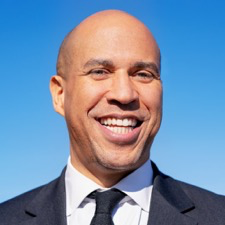
Cory BookerIf you are a workout guy, it reminds you of things you already know. That you can push your body and yourself far further than you think. (Source)

Chris GowardIn the non-business category recently, I found Living with a SEAL by Jesse Itzler to be both entertaining and inspiring. It summarizes a month he spent with the former Navy Seal, David Goggins, living in his home. (Source)
22

For the millions of Americans who want spirituality without religion, Sam Harris’s new book is a guide to meditation as a rational spiritual practice informed by neuroscience and psychology.
From multiple New York Times bestselling author, neuroscientist, and “new atheist” Sam Harris, Waking Up is for the 30 percent of Americans who follow no religion, but who suspect that Jesus, Buddha, Lao Tzu, Rumi, and the other saints and sages of history could not have all been epileptics, schizophrenics, or frauds. Throughout the book, Harris argues that there are important truths to be... more For the millions of Americans who want spirituality without religion, Sam Harris’s new book is a guide to meditation as a rational spiritual practice informed by neuroscience and psychology.
From multiple New York Times bestselling author, neuroscientist, and “new atheist” Sam Harris, Waking Up is for the 30 percent of Americans who follow no religion, but who suspect that Jesus, Buddha, Lao Tzu, Rumi, and the other saints and sages of history could not have all been epileptics, schizophrenics, or frauds. Throughout the book, Harris argues that there are important truths to be found in the experiences of such contemplatives—and, therefore, that there is more to understanding reality than science and secular culture generally allow.
Waking Up is part seeker’s memoir and part exploration of the scientific underpinnings of spirituality. No other book marries contemplative wisdom and modern science in this way, and no author other than Sam Harris—a scientist, philosopher, and famous skeptic—could write it. less 
Susan CainSuch a fantastic book. And it was really, for me, completely lifechanging. (Source)

Chris GowardI also highly recommend Sam Harris' Waking Up, which is a more well-rounded unpacking of non-religious mindfulness practice. (Source)
23

This lyrical, evocative, thought-provoking journal of a man's quest for truth - and for himself - has touched and changed an entire generation, and is ready to reach out to a new one. At its heart, the story is all too simple: a man and his son take a motorcycle trip across America. But this is not a simple trip at all, for around every corner, through mountain and desert, wind and rain, and searing heat and biting cold, their pilgrimage leads them to new vistas of self-discovery and renewal.
Zen and the Art of Motorcycle Maintenance is an elemental work that has helped to... more This lyrical, evocative, thought-provoking journal of a man's quest for truth - and for himself - has touched and changed an entire generation, and is ready to reach out to a new one. At its heart, the story is all too simple: a man and his son take a motorcycle trip across America. But this is not a simple trip at all, for around every corner, through mountain and desert, wind and rain, and searing heat and biting cold, their pilgrimage leads them to new vistas of self-discovery and renewal.
Zen and the Art of Motorcycle Maintenance is an elemental work that has helped to shape and define the past 25-years of American culture. This special audio edition presents this adventure in an exciting new way - for the millions who have already taken this journey and want to travel these roads again, and for the many more who will discover for the first time the wonders and challenges of a story that will change the way they think and feel about their lives. Unique to audio, this edition features a new introduction by the author. less 
Brad FeldI think every entrepreneur or aspiring entrepreneur should read the book Zen and the Art of Motorcycle Maintenance. It was written in the 1970s by a guy named Robert Pirsig. It was his first book, it's kind of a hippie philosophy treatised journey. The word that sort of came out of it was Chautauqua, he's like having a conversation with his son as they do a motorcycle trip across the country, and... (Source)

Drew Houston[There are] engineers who [dismiss] all these things that can’t be fit into an algorithm, or that don’t have some kind of mathematical rigor underpinning them, [this book] is about that question. (Source)
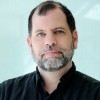
Tyler CowenHonorable mentions: Jonathan Livingston Seagull, Zen and the Art of Motorcycle Maintenance, and The Joy of Sex, all given to me by my mother. I believe they helped inculcate some of the 1960s-70s ethos of individual freedom into my thinking. (Source)
24

Cybernetics (loosely translated from the Greek): “a helmsman who steers his ship to port.” Psycho-Cybernetics is a term coined by Dr. Maxwell Maltz, which means, “steering your mind to a productive, useful goal so you can reach the greatest port in the world, peace of mind.”
Since its first publication in 1960, Maltz’s landmark bestseller has inspired and enhanced the lives of more than 30 million readers. In this updated edition, with a new introduction and editorial commentary by Matt Furey, president of the Psycho-Cybernetics Foundation, the original text has been annotated and... more Cybernetics (loosely translated from the Greek): “a helmsman who steers his ship to port.” Psycho-Cybernetics is a term coined by Dr. Maxwell Maltz, which means, “steering your mind to a productive, useful goal so you can reach the greatest port in the world, peace of mind.”
Since its first publication in 1960, Maltz’s landmark bestseller has inspired and enhanced the lives of more than 30 million readers. In this updated edition, with a new introduction and editorial commentary by Matt Furey, president of the Psycho-Cybernetics Foundation, the original text has been annotated and amplified to make Maltz’s message even more relevant for the contemporary reader.
“Before the mind can work efficiently, we must develop our perception of the outcomes we expect to reach. Maxwell Maltz calls this Psycho-Cybernetics; when the mind has a defined target it can focus and direct and refocus and redirect until it reaches its intended goal.” —Tony Robbins (from Unlimited Power)
Maltz was the first researcher and author to explain how the self-image (a term he popularized) has complete control over an individual’s ability to achieve (or fail to achieve) any goal. And he developed techniques for improving and managing self-image—visualization, mental rehearsal, relaxation—which have informed and inspired countless motivational gurus, sports psychologists, and self-help practitioners for more than fifty years.
The teachings of Psycho-Cybernetics are timeless because they are based on solid science and provide a prescription for thinking and acting that lead to quantifiable results. less 
Chris GowardHere are some of the books that have been very impactful for me, or taught me a new way of thinking: [...] Psycho Cybernetics. (Source)

Mark StruczewskiGrant Cardone: The 10X Rule and Be Obsessed or Be Average; Tony Robbins: Awaken the Giant Within; Mel Robbins: The 5 Second Rule; and Maxwell Maltz: The New Psycho-Cybernetics. These books will encourage you but more than that EQUIP you to win! (Source)
25

For out-starting upstarts of all ages, here is a wonderfully wise and blessedly brief graduation speech from the one and only Dr. Seuss. In his inimitable, humorous verse and pictures, he addresses the Great Balancing Act (life itself, and the ups and downs it presents) while encouraging us to find the success that lies within us.
And will you succeed?
Yes! You will indeed!
(98 and ¾ percent guaranteed.)
A modern classic, Oh, the Places You'll Go! was first published one year before Dr. Seuss's death at the age... more For out-starting upstarts of all ages, here is a wonderfully wise and blessedly brief graduation speech from the one and only Dr. Seuss. In his inimitable, humorous verse and pictures, he addresses the Great Balancing Act (life itself, and the ups and downs it presents) while encouraging us to find the success that lies within us.
And will you succeed?
Yes! You will indeed!
(98 and ¾ percent guaranteed.)
A modern classic, Oh, the Places You'll Go! was first published one year before Dr. Seuss's death at the age of eighty-seven. In a mere fifty-six pages, Dr, Seuss managed to impart a lifetime of wisdom. It is the perfect send-off for children starting out in the maze of life, be they nursery school grads or newly-minted PhD's. Everyone will find it inspired good fun. less 
Richard BransonToday is World Book Day, a wonderful opportunity to address this #ChallengeRichard sent in by Mike Gonzalez of New Jersey: Make a list of your top 65 books to read in a lifetime. (Source)

Chris GowardNarrowing down a favourite book in either business or non-business from the hundreds of mind-expanding books I've benefited from in the four decades of my life (beginning with Oh, The Places You'll Go! by Dr. Seuss) would be impossible. (Source)
Don't have time to read Chris Goward's favorite books? Read Shortform summaries.
Shortform summaries help you learn 10x faster by:
- Being comprehensive: you learn the most important points in the book
- Cutting out the fluff: you focus your time on what's important to know
- Interactive exercises: apply the book's ideas to your own life with our educators' guidance.























